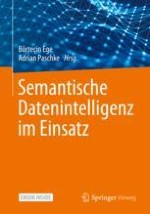2021 | OriginalPaper | Buchkapitel
8. Automatische Konversion von natürlichsprachlichen Texten zu Ontologien am Beispiel von Wartungshandbüchern für Flugzeuge
verfasst von : Bernd Geiger
Erschienen in: Semantische Datenintelligenz im Einsatz
Verlag: Springer Fachmedien Wiesbaden
Aktivieren Sie unsere intelligente Suche, um passende Fachinhalte oder Patente zu finden.
Wählen Sie Textabschnitte aus um mit Künstlicher Intelligenz passenden Patente zu finden. powered by
Markieren Sie Textabschnitte, um KI-gestützt weitere passende Inhalte zu finden. powered by
